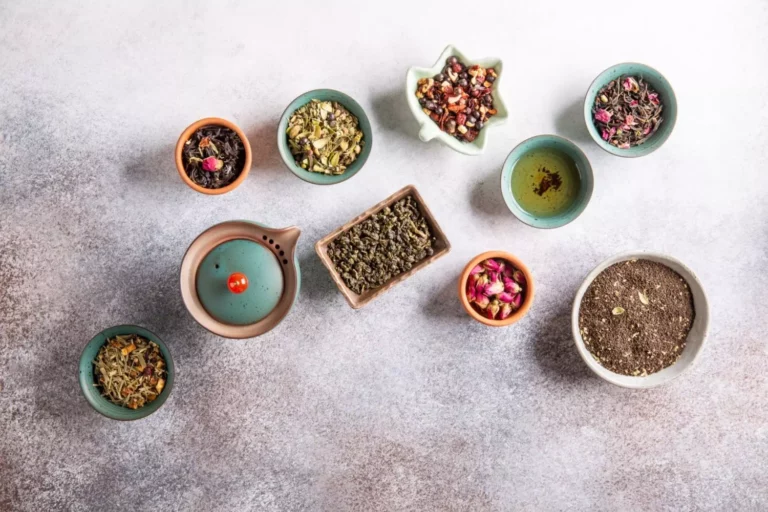What Are TCM Herbs?
TCM herbs, a cornerstone of Traditional Chinese Medicine, encompass a wide array of plant-based elements renowned for their healing attributes. These botanicals are meticulously chosen and blended, aiming to establish equilibrium and wellness within the body. In TCM, herbs are often formulated in combinations, acknowledging the amplified effectiveness when used synergistically. This ancient medical practice leverages these herbs to modulate energy circulation, fortify the body, and mitigate a range of health concerns. Moreover, TCM herbs are revered for their ability to work in concert with the body’s natural processes, offering a gentle yet potent approach to healing. The use of these herbs is deeply rooted in centuries-old wisdom, reflecting a profound understanding of the interplay between nature and human health. Through TCM herbs, practitioners aim to not only treat ailments but also to nurture overall well-being and prevent future health problems.
Read Also: What is Chinese Herbal Medicine?
Top 10 Chinese Herbs
In this carefully curated collection, we present to you 10 of the finest all-natural herbs, staples in Traditional Chinese Medicine, renowned for enhancing health and vitality. Each herb in this selection has a rich history and offers distinct health benefits, some of which have been recognized for centuries and are now being reaffirmed by contemporary research.
Among the vast array of medicinal herbs cultivated worldwide, this compilation serves as your introductory guide to the most celebrated Chinese herbs. These botanical solutions, formulated by experts in Traditional Chinese Medicine, are designed to augment your health and overall well-being in various ways.
These natural healers are more than just remedies; they are a testament to the enduring wisdom of Traditional Chinese Medicine and its holistic approach to nurturing the body and mind.
1. Ren Shen (Red Ginseng Root)
Sourced from Panax ginseng, Red Shen undergoes a steaming and drying process, enhancing its potency. This herb is revered for its ability to boost energy, support the immune system, and improve cognitive function. Ren Shen is an effective natural remedy for combating fatigue and enhancing overall vitality. Its adaptogenic nature makes it a valuable addition to herbal treatment programs.
2. Dang Shen (Codonopsis Root)
This herb is known for its adaptogenic qualities, similar to ginseng, making it a valuable addition to herbal formulations. Dang Shen is also known for its gentle yet effective energy-boosting capabilities. It not only enhances vitality but also supports the digestive system, making it a versatile herb for overall well-being. Its mild nature makes it suitable for extended use without overwhelming the system.
3. Huang Qi (Astragalus Root)
Huang Qi is known for its immune-boosting and adaptogenic properties. Sourced from the Astragalus membranaceus plant, this herb is known for enhancing Qi, the body’s vital energy. Huang Qi is appreciated for its role in promoting overall resilience and supporting immune function. Its sweet and slightly warming nature makes it a versatile herb that complements various formulations.
Read Also: What is Qi in Chinese Medicine?
4. Bai Shao (White Peony Root)
Bai Shao, or White Peony Root, is a valuable herb in Traditional Chinese Medicine recognized for its harmonizing properties. Sourced from the Paeonia lactiflora plant, it is known for nourishing the blood and regulating the menstrual cycle. Bai Shao brings calming effects on the nervous system, aiding in stress reduction. Its ability to soothe muscle tension and address menstrual irregularities makes it a versatile herb for women’s health.
5. Suan Zao Ren (Jujube Seed)
Suan Zao Ren is praised for its calming properties. Derived from the seeds of the Ziziphus jujuba fruit, it is renowned for promoting relaxation and alleviating insomnia. Suan Zao Ren is a gentle yet effective natural remedy for improving sleep quality. Its ability to soothe the mind and nourish the Heart Qi makes it a valuable addition to formulations addressing stress and emotional well-being.
6. Wu Wei Zi (Schisandra Berry)
Derived from the Schisandra chinensis plant, it is renowned for supporting the body’s resilience to stress and promoting overall vitality. Wu Wei Zi is known for its harmonizing effects on various bodily systems, including the liver and respiratory system. Its unique blend of five flavors, sour, sweet, bitter, acrid, and salty, offers a well-rounded herbal experience.
Read Also: What does Aromatherapy do to Help You Feel Better?
7. Jin Yin Hua (Honeysuckle Flower)
Derived from the Lonicera japonica plant, it is known for its ability to clear heat and toxins from the body. Jin Yin Hua has versatile applications, aiding in respiratory issues, skin conditions, and promoting overall well-being. Its sweet and slightly cold nature makes it suitable for various formulations. Regular incorporation of Jin Yin Hua offers a natural and effective approach to supporting immune health and detoxification.
8. Bai Zhu (Atractylodes Root)
Sourced from the Atractylodes macrocephala plant, it is known for strengthening the spleen and promoting the transformation of food into energy. Bai Zhu helps by addressing digestive issues, such as bloating and fatigue after meals. Its sweet and slightly bitter taste adds depth to herbal formulations.
9. Bai Zhi (Fragrant Angelica Root)
Sourced from the Angelica dahurica plant, it is recognized for its acrid and warm properties. Bai Zhi is effective in relieving headaches, sinus congestion, and promoting nasal health. Its aromatic nature adds a pleasant dimension to herbal formulations.
10. He Huan Pi (Mimosa Tree Bark)
Derived from the Albizia julibrissin plant, it is recognized for its sweet and slightly cold nature. He Huan Pi is often utilized to soothe the spirit, alleviate stress, and ease emotional imbalances. He Huan Pi has a gentle yet effective impact on promoting emotional well-being and reducing anxiety. Its ability to harmonize the Heart and Liver energies makes it a valuable addition to formulations aimed at fostering a balanced and serene state of mind.
Tips for Using Chinese Herbs
Using traditional Chinese medicine herbs effectively involves some key practices and considerations:
- Consult a Professional. You should ask a qualified herbalist for a consultation. Their expertise ensures proper selection, dosage, and compatibility with your individual health needs.
- Quality Matters. Purchase herbs from reputable sources to ensure quality and authenticity. Look for certified herbal products to avoid adulteration or contamination.
- Dosage and Timing. Follow recommended dosages and usage instructions provided by your herbalist. Take herbs at prescribed times and intervals for optimal effectiveness.
- Consistency is Important. Herbs used in traditional Chinese medicine often require consistent use over time for noticeable effects. Stick to the prescribed regimen to allow the herbs to work gradually within your body.
- Monitor Effects. Observe and track how your body responds to the herbs. Report any adverse reactions or changes to your practitioner.
- Storage and Preservation. Store herbs in a cool, dry place away from direct sunlight to maintain their potency. Follow specific storage instructions for individual herbs or formulations.
- Combine with Healthy Lifestyle. Incorporate Chinese herbs into a balanced lifestyle, including a nutritious diet, regular exercise, and stress management practices for overall better effect.
- Individualized Approach. Herbal treatments are often made for individual constitutions and conditions. What works for one person may not work the same for another; hence, personalized guidance is essential for optimal results.
Remember, the information here is general; for safe and effective use of Chinese herbs, it’s highly advisable to consult with a qualified practitioner familiar with Traditional Chinese Medicine (TCM) and your specific health needs.
Read Also: Traditional Chinese Medicine: What You Need To Know
Chinese Herbal Therapy: An Expert Perspective from Marina Doktorman
I hold Chinese traditional herbs in high regard for their impact on holistic health. Chinese herbal medicine, rooted in centuries of empirical knowledge, offers a diverse array of botanical remedies that synergize with our approach to holistic wellness.
At Pulse Acupuncture, our acupuncture clinic, we recognize the potency of Chinese traditional herbs in restoring balance and supporting overall health. These herbs, carefully selected and prescribed based on individual needs and patterns, harness the body’s innate ability to heal and harmonize.
Our practice uses the integration of these time-tested Chinese herbal medicine formulations into personalized treatment plans, complementing other modalities such as acupuncture, tuina massage, and dietary recommendations. This holistic approach aligns with our commitment to addressing the root causes of ailments, promoting wellness, and restoring vitality.
However, it’s important to note that the efficacy of Chinese traditional herbs lies in their proper selection and individualized application. Therefore, we help you to choose the needed herbs and their dosage for a maximum result. Our dedication remains in providing safe, effective, and individualized care to optimize the health and vitality of our clients through the power of Chinese traditional herbs.
Traditional Chinese Medicine Herbs List – FAQ
How Many Herbs are in TCM?
Traditional Chinese Medicine (TCM) utilizes approximately 13,000 medicinal substances, primarily herbs, in its treatments. However, the most commonly used range is between 500 to 600 different herbs.
How Long Do Chinese Herbs Take to Work?
The time it takes for Chinese herbs to start working can vary depending on the condition being treated, the specific herbs used, and the individual’s overall health. Generally, some people may notice improvements within a few days to a week, while for chronic conditions, it may take several weeks or even months to see significant changes. It’s important to follow the guidance of a qualified practitioner who can tailor the treatment to your specific needs.
What is The Most Common Chinese Herb?
The most common Chinese herb is likely Ginseng (Panax ginseng), renowned for its numerous health benefits. Ginseng is extensively used in Traditional Chinese Medicine for its ability to boost energy, enhance cognitive function, reduce inflammation, and increase overall well-being. It is considered a tonic that helps balance the body’s energies, particularly benefiting the “Qi” or vital energy.
What is a Chinese Herbs List?
A Chinese herbs list refers to a compilation of various herbs that are commonly used in Traditional Chinese Medicine (TCM). These herbs have been utilized for centuries in China to promote health, treat various ailments, and balance the body’s energy or “Qi.”
What is the Significance of a List of Chinese Herbs in Traditional Chinese Medicine?
A list of Chinese herbs is crucial in Traditional Chinese Medicine because it provides a guide to the natural remedies available for treating a wide array of health conditions. Each herb has specific properties and effects that contribute to overall well-being and healing processes.
What Should You Know About Traditional Chinese Medicine Herbs for Fertility?
Traditional Chinese Medicine (TCM) herbs are often used to support fertility by helping regulate cycles, support ovulation, improve sperm parameters, and manage stress—but the right formula depends on your specific pattern and health history. Because fertility blends are highly individualized and can interact with medications (and aren’t appropriate during certain stages of pregnancy), it’s best to use them under guidance of a licensed practitioner, ideally alongside your OB-GYN/REI care.
What Are Traditional Chinese Medicine Anti-Aging Herbs Used For?
TCM “anti-aging” herbs are typically used to support healthy aging by promoting energy, sleep, stress resilience, circulation, and skin vitality—not as a quick reversal of aging. Since these herbs can affect blood pressure, blood sugar, hormones, or interact with medications, a personalized formula and professional oversight are the safest way to use them effectively.
-
Marina Doktorman, M.S., L.Ac., is an experienced acupuncturist who obtained her Masters of Acupuncture from the Tri-State College of Acupuncture in New York City in 2001. During her studies, she focused on Chinese Herbology, a branch of Traditional Chinese Medicine (TCM) that utilizes herbs to complement acupuncture treatments. Marina is licensed in both New York (NY) and New Jersey (NJ) and holds a Diplomate of Acupuncture from the National Certification Commission for Acupuncture and Oriental Medicine (NCCAOM), indicating her expertise in the field.







